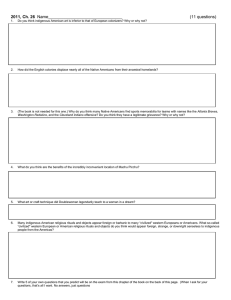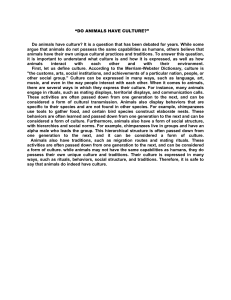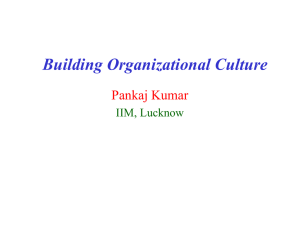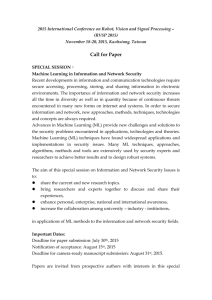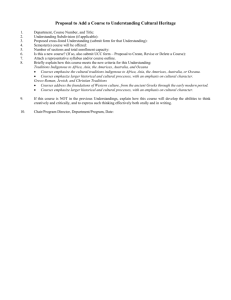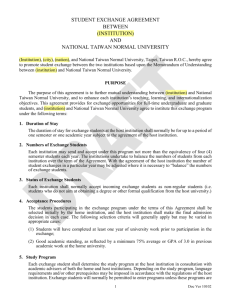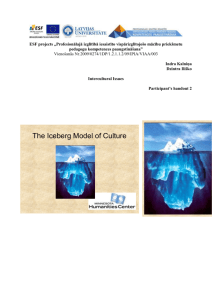RUDOLPH, Michael (Heidelberg University, Germany)
advertisement
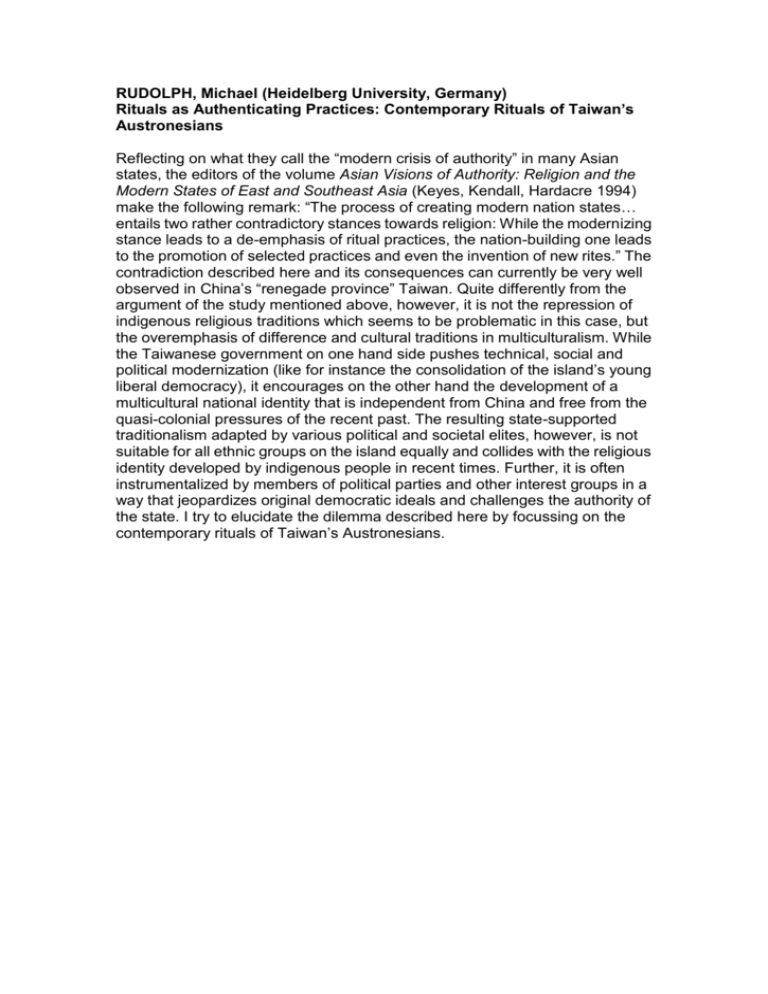
RUDOLPH, Michael (Heidelberg University, Germany) Rituals as Authenticating Practices: Contemporary Rituals of Taiwan’s Austronesians Reflecting on what they call the “modern crisis of authority” in many Asian states, the editors of the volume Asian Visions of Authority: Religion and the Modern States of East and Southeast Asia (Keyes, Kendall, Hardacre 1994) make the following remark: “The process of creating modern nation states… entails two rather contradictory stances towards religion: While the modernizing stance leads to a de-emphasis of ritual practices, the nation-building one leads to the promotion of selected practices and even the invention of new rites.” The contradiction described here and its consequences can currently be very well observed in China’s “renegade province” Taiwan. Quite differently from the argument of the study mentioned above, however, it is not the repression of indigenous religious traditions which seems to be problematic in this case, but the overemphasis of difference and cultural traditions in multiculturalism. While the Taiwanese government on one hand side pushes technical, social and political modernization (like for instance the consolidation of the island’s young liberal democracy), it encourages on the other hand the development of a multicultural national identity that is independent from China and free from the quasi-colonial pressures of the recent past. The resulting state-supported traditionalism adapted by various political and societal elites, however, is not suitable for all ethnic groups on the island equally and collides with the religious identity developed by indigenous people in recent times. Further, it is often instrumentalized by members of political parties and other interest groups in a way that jeopardizes original democratic ideals and challenges the authority of the state. I try to elucidate the dilemma described here by focussing on the contemporary rituals of Taiwan’s Austronesians.
